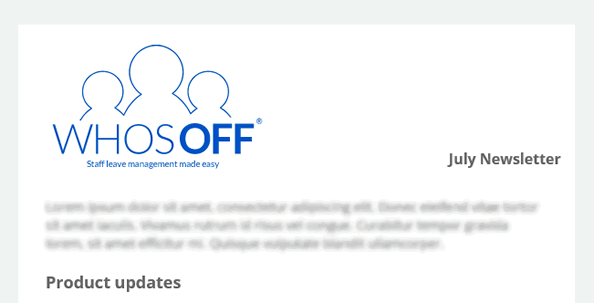It might seem counter-productive to actively promote time away from the office, but research is showing that stressed out employees are increasingly in need of a break. Should your business be encouraging colleagues to take more annual leave – and how to you manage this without it negatively impacting workload? Let’s take a closer look…
Annual leave is being overshadowed
‘Presenteeism’ has become a real problem for the modern workplace. People are working longer hours with fewer days off, and constant connectivity means staff are at the end of an email chain even when they’re supposed to be relaxing at home.
A recent study by Expedia in Australia found that 1 in 6 employees failed to take a single day of annual leave last year, with the average person only using 14 of their 20 entitled days. The story is the same in other parts of the world, too; TUC data shows 1 in 12 UK workers are not taking their full holiday entitlement, while 50% of US professionals are known to skip their annual vacation.
As an employer, this might seem like you’re getting greater value for money – after all, it’s down to your staff whether they use their holiday allocation. However, encouraging a climate of overworking can actually have a detrimental impact on productivity and output.
5 reasons you should encourage staff to take more leave
There are many benefits to your workforce taking a break and recharging their batteries throughout the year. These include:
- Preventing overtiredness and burn out - recuperation time is important in enabling people to work at full capacity. Without a few days to rest every once in a while, staff risk becoming overtired and slowly burning out
- Lowering stress levels – as we’ve already mentioned, the constant ability to connect online means people often remain in work mode even after they leave the office. Taking a couple of days away can reduce their stress levels and ensure staff are ready to cope with even the most demanding situations
- Helping teams to refocus – sometimes if you’re too close to a problem, you can’t see the wood for the trees. Taking time off forces people to step back, and this new perspective often leads to niggling problems being solved on their return
- Motivating other team members – sometimes staff are reluctant to take leave for fear of burdening their colleagues. However, taking responsibility for an absent team member’s workload gives those that are still in the office the chance to step up and shine
- Happiness is contagious – generally speaking, people come back from a break refreshed, revitalised and ready to get to stuck in. This kind of positive energy is infectious, and can help to put the whole company in a happy and productive mood
Make it easier to manage staff leave
Sometimes employees fail to use their full holiday entitlement because the leave request process is complex, or they can’t see who’s off at a particular point in time. Improving the way in which you track workforce movements can remove this barrier and help your organisation to manage staff availability much more effectively.
Switching to an online leave management platform creates a quicker and more transparent way to control annual leave entitlements. Staff will be able to see at-a-glance how much holiday they have left to take, and easily view who else has already booked time off to avoid awkward clashes.
The right solution will also help you to streamline the way in which paid holiday is managed; for example, helping you calculate holiday entitlement pay for leavers, or channelling communications online rather than through wasteful (and easily misplaced) paper forms.
Ultimately, encouraging staff to take time off can be a positive thing for your business, and putting in place a central leave management software is the ideal way to ensure that it doesn’t impact overall productivity. If anything, it will help you prepare more effectively, giving colleagues that are still in the office added peace of mind.
WhosOff has helped thousands of organisations in more than 65 countries worldwide take control of their leave management. Try WhosOff holiday management software for free to see the benefits first-hand.

